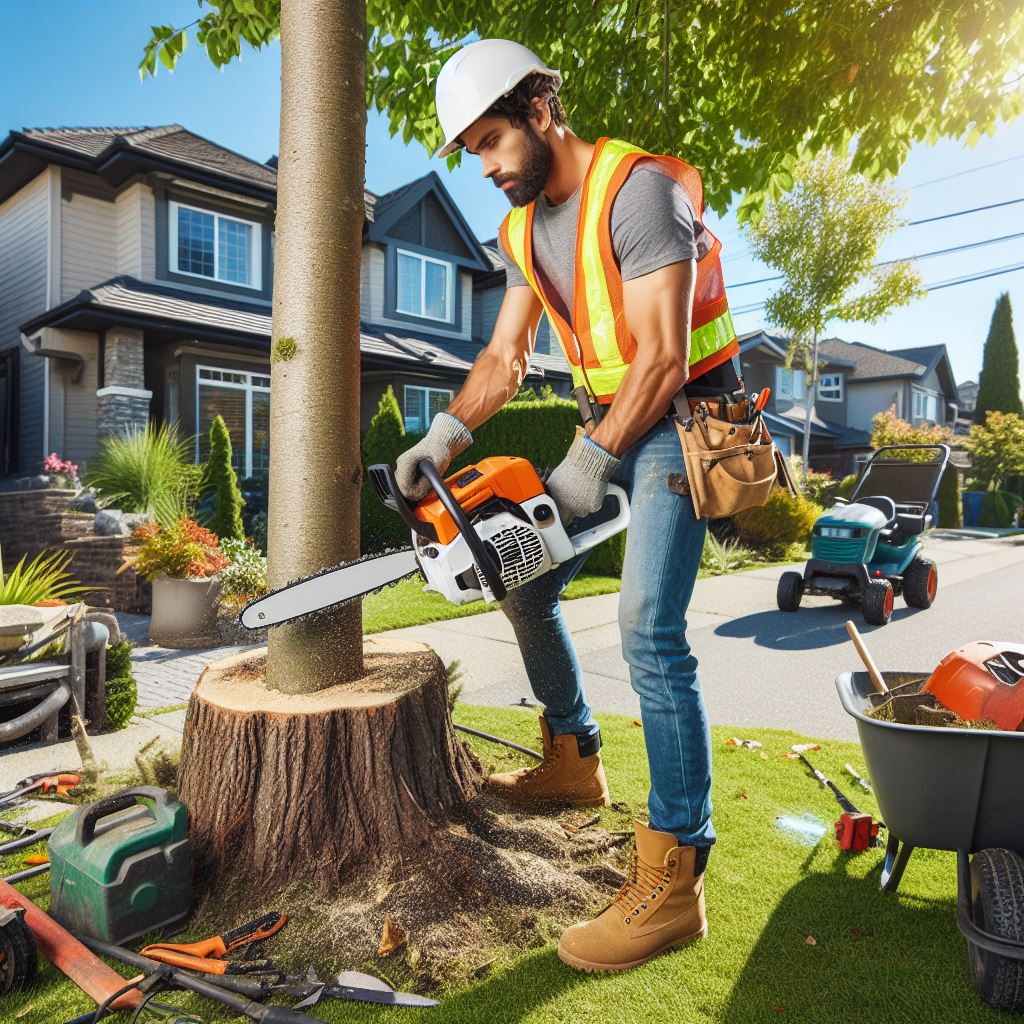Introduction
The EV era in Canada marks the rise of electric vehicles as a prominent mode of transportation.
Mechanics play a crucial role in this era by ensuring the maintenance and repair of electric vehicles.
As Canada strides confidently into the Electric Vehicle (EV) era, the landscape of the automotive industry undergoes a profound transformation, beckoning the evolution of mechanics.
This shift not only redefines the traditional roles of mechanics but also heralds a new era of skill acquisition, innovation, and sustainable practices within the Canadian automotive sector.
In this dynamic environment, the future of mechanics in Canada unfolds as a compelling narrative, shaped by technological advancements, environmental consciousness, and the exciting challenges posed by the burgeoning EV industry.
This exploration delves into the multifaceted facets of this metamorphosis, offering insights into the pivotal role mechanics play in steering Canada towards a cleaner, more efficient automotive future.
The Current State of Mechanics in Canada’s EV Era
Overview of the demand for mechanics in the EV industry
The shift towards electric vehicles (EVs) in Canada has created a significant demand for skilled mechanics.
As more Canadians embrace the EV revolution, the need for qualified professionals who can service and maintain these vehicles continues to grow.
The demand for mechanics in the EV industry is driven by the increasing number of electric vehicles on Canadian roads.
According to Statistics Canada, the number of registered EVs in the country has been steadily rising over the years.
As of 2021, there are approximately 200,000 electric vehicles in Canada, and this number is expected to increase exponentially in the coming years.
This surge in EV ownership presents a unique opportunity for mechanics to specialize in this emerging field.
Traditional auto mechanics will need to update their skill set to meet the specific requirements of EVs.
This includes gaining knowledge about electric drivetrains, battery management systems, and high-voltage electrical systems.
Discussion on the skills and knowledge mechanics need in this era
To thrive in Canada’s EV era, mechanics need to possess a unique set of skills and knowledge.
First and foremost, they must be well-versed in electrical systems, as EVs rely on complex electrical components.
This includes understanding how to diagnose and repair issues with electric drivetrains and onboard charging systems.
Mechanics should also be proficient in handling high-voltage systems safely.
Since EVs operate at higher voltages than traditional vehicles, mechanics must undergo specialized training to ensure they can work on these systems without risking injury or damage to the vehicle.
Furthermore, staying up-to-date with the latest EV technology is essential for mechanics.
As the industry rapidly evolves, mechanics must continuously update their knowledge and skills to keep pace with advancements in battery technology, regenerative braking systems, and other innovative features.
Challenges faced by mechanics due to EV advancements
While the EV era presents exciting opportunities for mechanics, it also comes with its fair share of challenges.
One major obstacle is the need for ongoing training and education.
With constant advancements in EV technology, mechanics must invest in continuous learning to stay ahead of the curve.
This may require attending specialized courses or workshops to expand their knowledge and skills.
Unlock Your Career Potential
Visualize a clear path to success with our tailored Career Consulting service. Personalized insights in just 1-3 days.
Get StartedAnother challenge is the availability of specialized tools and equipment. EVs have unique components that may require specific tools for diagnosis and repair.
Mechanics must have access to these tools and stay updated on new equipment developments to efficiently service EVs.
Moreover, the transition to EVs presents concerns about job security for traditional auto mechanics.
As the demand for electric vehicles grows, the need for mechanics who specialize in internal combustion engines may decline.
To stay relevant in the industry, mechanics must adapt and acquire the necessary skills to service electric vehicles.
In short, the current state of mechanics in Canada’s EV era is experiencing significant growth and evolution.
The increasing demand for skilled mechanics reflects the growing popularity of electric vehicles in the country.
To excel in this field, mechanics must update their skill set and knowledge to meet the unique requirements of EVs.
However, challenges such as ongoing training and access to specialized tools need to be addressed to ensure a seamless transition into the future of mechanics in Canada.
Read: Mechanic Certifications: What You Need in Canada
Opportunities for Mechanics in Canada’s EV Era
The future of mechanics in Canada’s EV era is filled with promising opportunities.
Growing number of EVs on the road
The growing number of EVs on the road opens doors for mechanics who are willing to adapt and specialize in EV technology.
With the increasing need for specialized EV technicians, mechanics who have the necessary skills can find themselves in high demand.
This demand not only provides job security but also the potential for career advancement and higher salaries.
Increasing need for specialized EV technicians
As the popularity of EVs continues to rise, mechanics who have the ability to diagnose and repair electric motors, batteries, and other EV components will be essential.
These specialized skills set them apart from traditional mechanics and give them a unique advantage in the job market.
Potential career advancement and higher salaries for mechanics
There are various avenues for career advancement for EV mechanics.
They can progress and work for car manufacturers, dealerships, or even start their own repair shops.
This versatility allows EV mechanics to choose the path that aligns with their goals and interests.
In addition to career advancement opportunities, specializing in EV technology often leads to higher salaries.
The demand for EV mechanics and their specialized skills commands a premium, which translates into better pay for these professionals.
In essence, the future of mechanics in Canada’s EV era looks promising.
The growing number of EVs on the road, the increasing need for specialized technicians, and the potential for career advancement and higher salaries make it an exciting time to be an EV mechanic.
By embracing and specializing in EV technology, mechanics can position themselves for a successful and fulfilling career in the EV industry.
Read: Balancing Tradition & Innovation in Carpentry
Training and Education for Mechanics in Canada’s EV Era
Importance of acquiring EV-specific knowledge and skills
- EVs are becoming increasingly popular in Canada, creating a demand for mechanics with expertise in this field.
- Traditional mechanical training may not adequately prepare mechanics to handle the unique complexities of EVs.
- Mechanics need to understand EV-specific components, safety protocols, and diagnostic techniques.
- Acquiring EV-specific knowledge and skills will ensure mechanics can provide high-quality, reliable repairs and maintenance for EV owners.
Overview of existing training programs and certifications for mechanics
- Some technical colleges and vocational schools in Canada offer EV training programs.
- These programs cover topics such as EV diagnostics, battery systems, electric motor maintenance, and safety precautions.
- Several automotive manufacturers also offer specialized training and certifications for their EV models.
- However, the availability and accessibility of these programs may be limited in certain regions.
Suggestions for expanding EV training opportunities
- Government funding should be allocated to develop and expand EV training programs across the country.
- Collaborations between educational institutions, industry associations, and EV manufacturers can help enhance training offerings.
- Online courses and virtual training sessions can increase accessibility for mechanics in remote areas.
- Regular updates and refresher courses should be provided to keep mechanics up to date with evolving EV technology.
By prioritizing training and education, Canada can build a skilled workforce of mechanics capable of supporting its growing EV industry.
Read: Carpentry and Canadian Building Codes

Government Support and Initiatives for Mechanics in Canada’s EV Era
Discussion on government incentives to encourage EV adoption
- The Canadian government has implemented numerous incentives to encourage the adoption of electric vehicles (EVs).
- These incentives include financial rebates, tax credits, and grants, making EVs more affordable for consumers.
- By reducing the upfront cost of purchasing an EV, the government aims to increase their market share.
- These incentives also contribute to the growth of the EV industry, creating more job opportunities for mechanics.
- Additionally, the government offers incentives for installing electric vehicle charging infrastructure, further supporting the EV ecosystem.
Overview of initiatives supporting EV repair infrastructure
- To support the transition to an EV-dominated future, the Canadian government has been investing in the development of EV repair infrastructure.
- They provide grants and financial assistance to repair shops and mechanics for upgrading their facilities and equipment.
- These initiatives aim to enhance the capacity of local repair shops to handle the unique needs of electric vehicles.
- Moreover, the government collaborates with industry associations to establish certification programs for EV repair technicians.
- By creating a robust repair infrastructure, the government ensures convenient and accessible maintenance services for EV owners.
Potential government policies to promote training and employment of mechanics in the EV industry
- Recognizing the need for skilled mechanics in the growing EV industry, the Canadian government is exploring several potential policies.
- One potential policy involves introducing financial incentives for individuals pursuing training and certifications specific to EVs.
- These incentives could include grants, scholarships, or subsidized tuition fees, making EV-focused education more accessible.
- The government is also considering partnerships with technical institutes and colleges to develop specialized EV mechanic programs.
- Additionally, they aim to establish apprenticeship programs that provide on-the-job training opportunities in the EV repair sector.
In general, the Canadian government plays a crucial role in supporting mechanics in the EV era through various initiatives and policies.
By providing incentives for EV adoption, they contribute to increased demand for EV repair and maintenance services.
Investments in the repair infrastructure ensure that mechanics have the necessary resources to handle the unique nature of EVs.
Furthermore, policies promoting training and employment in the EV industry empower mechanics to develop expertise in this emerging field.
With strong government support, mechanics in Canada can embrace the future of the EV industry and contribute to its success.
Read: Rural vs. Urban Carpentry in Canada
The Role of Mechanics in Ensuring the Success of Canada’s EV Era
Importance of mechanics in maintaining and repairing EVs
- Mechanics play a critical role in ensuring the smooth operation and longevity of electric vehicles (EVs).
- As EVs become more prevalent in Canada, the demand for skilled mechanics who can repair and maintain these vehicles will increase.
- Specialized knowledge and expertise are required to effectively diagnose and fix issues specific to EVs.
- Mechanics need to be trained on the unique components and systems of EVs, including the battery, electric motor, and charging infrastructure.
- Regular maintenance and servicing by experienced mechanics are crucial to maximize the performance and efficiency of EVs.
- Mechanics also need to be aware of the safety protocols and procedures specific to EVs, such as handling high-voltage systems.
Discussion on the role of mechanics in enhancing public confidence in EVs
- Mechanics serve as ambassadors for EVs, as they interact directly with customers and address their concerns.
- Through transparent communication and excellent service, mechanics can build trust and confidence in EV technology.
- By providing accurate information about the benefits and capabilities of EVs, mechanics can dispel misconceptions and increase adoption.
- Mechanics play a pivotal role in promoting a positive perception of EVs by ensuring reliable and efficient repairs.
- Quick turnaround time for repairs, along with fair pricing, contributes to customer satisfaction and promotes trust in the technology.
- When mechanics demonstrate their expertise in handling EVs, potential buyers feel more confident in investing in an electric vehicle.
Potential opportunities for mechanics to contribute to the development of EV technology
- Mechanics can actively participate in the research and development of EV technology to improve performance and reliability.
- Through partnerships with manufacturers and industry experts, mechanics can provide valuable feedback for technology advancements.
- Mechanics can contribute to the design and implementation of more efficient and sustainable EV repair processes.
- Continuous learning and upskilling allow mechanics to stay updated with the latest EV technology and advancements.
- Mechanics can become advocates for EVs by sharing their expertise through workshops, training programs, and educational initiatives.
- By actively engaging with EV communities, mechanics can influence policy changes to support EV adoption and infrastructure development.
Conclusion
Mechanics in Canada’s EV era play a crucial role in ensuring the success of electric vehicles and their widespread adoption.
Their expertise in maintaining and repairing these vehicles will be in high demand.
It is essential for mechanics to embrace new opportunities and adapt to the changing landscape of the automotive industry.
By gaining knowledge and skills related to electric vehicles, they can stay ahead and thrive in this evolving market.
The future prospects for mechanics in Canada’s EV era are promising. As electric vehicles become more prevalent, the demand for skilled mechanics will continue to grow.
It is crucial for mechanics to seize this opportunity and equip themselves with the necessary expertise to meet the evolving needs of the industry.
By embracing new technologies and adapting to the changing landscape, mechanics can secure their place in the future of automotive repair and maintenance.




